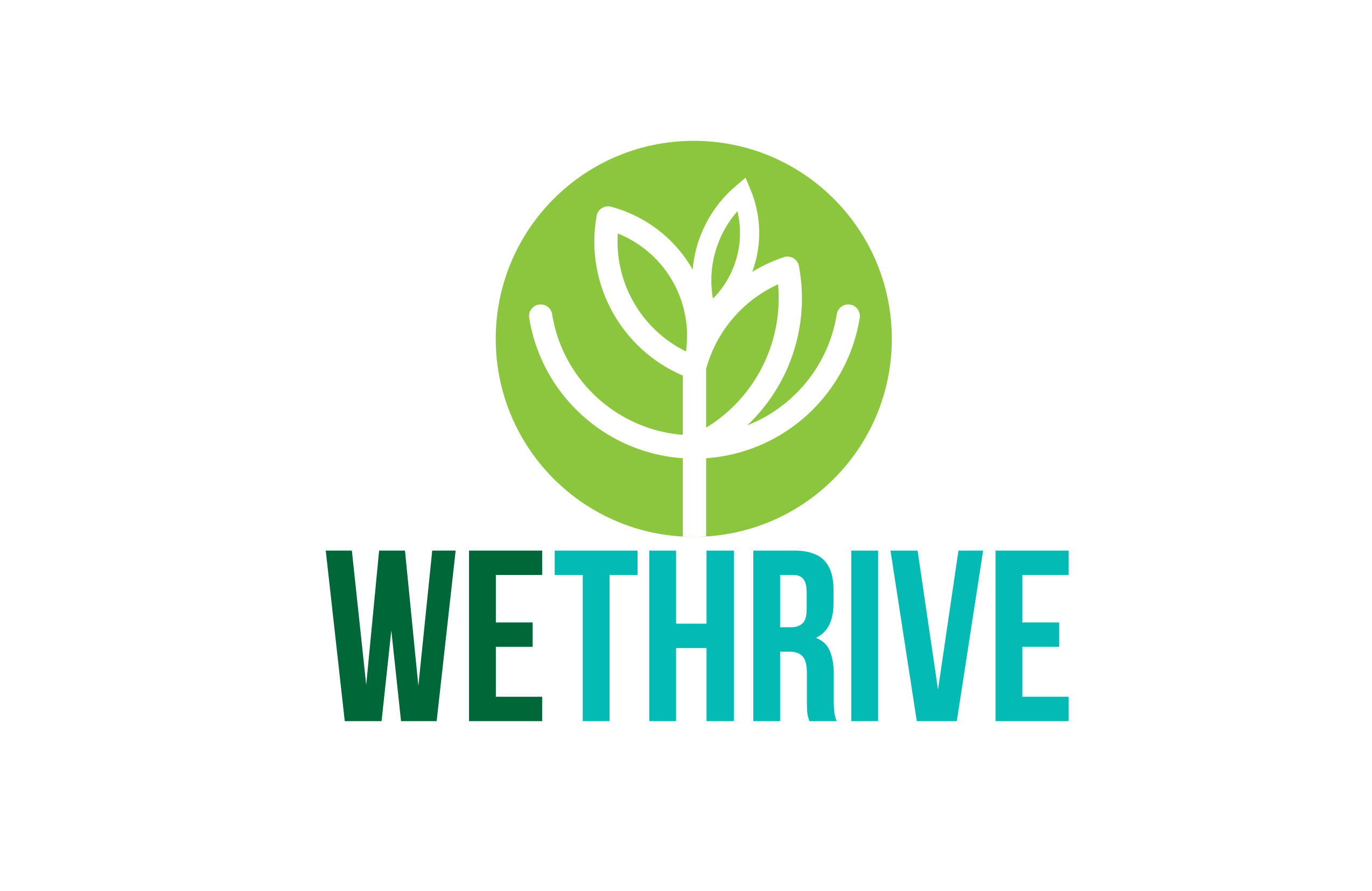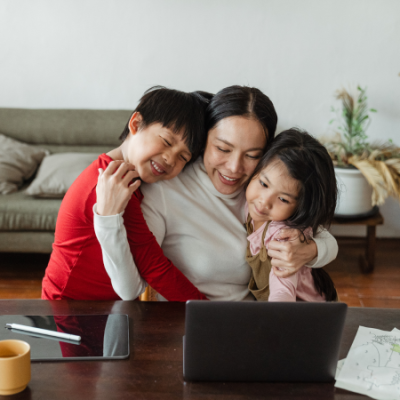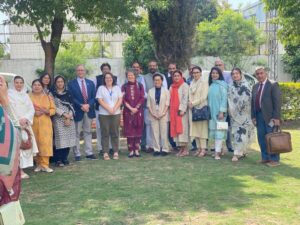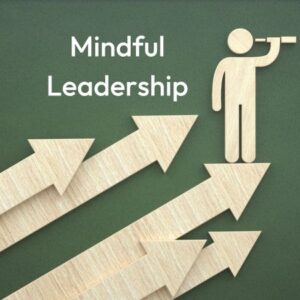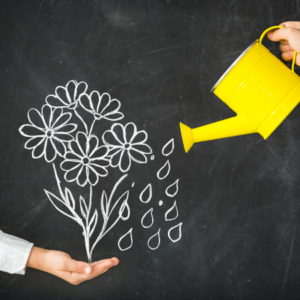Mother’s Day is often celebrated with flowers, cards, and gratitude—and rightly so. But behind
the smiles and social media posts, many mothers carry weight that’s often times invisible. As both a mental health professional and a mother, I’ve sat on both sides of the couch: listening to the struggles of other moms, and quietly wrestling with my own.
Motherhood is rewarding, but it’s also overwhelming, especially in today’s world of constant demands, high expectations, and limited support. The American Psychological Association has consistently found that women, especially mothers, report higher levels of stress than men. Locally, the Philippine Mental Health Association (PMHA) and studies from the University of the Philippines have reported a growing number of Filipino mothers facing depression, anxiety, and burnout—issues only amplified by social, economic, and cultural pressures unique to our context (PMHA, 2022; UP Center for Women’s and Gender Studies, 2021).
This Mother’s Day, let’s move beyond platitudes and dive into something deeper: the top five stressors Filipino mothers face—and how we, as a society, as families, and as professionals, can truly support them.
1. Mental Load and Invisible Labor
What It Is:
The “mental load” refers to the unseen cognitive and emotional work mothers perform daily: tracking tuition due dates, remembering medical appointments, planning ulam, managing household needs, and caring for both children and aging parents. For many Filipino mothers, this often extends to acting as the family’s emotional mediator, handling OFW remittances and even helping relatives financially.
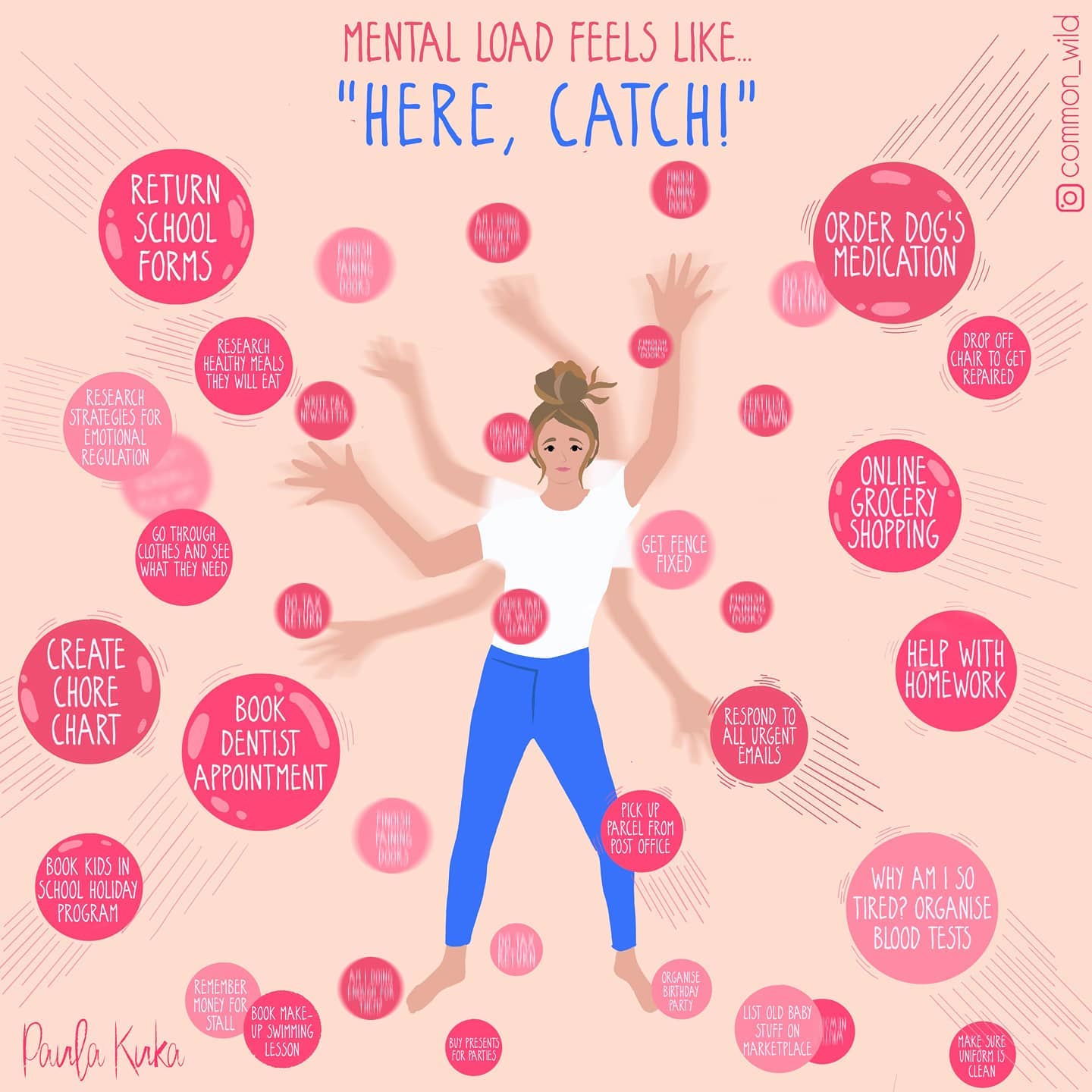
The Impact:
When mothers are always “on,” they begin to feel like managers instead of people. A 2021 survey by the UP Center for Women’s and Gender Studies noted that in dual-income households, mothers still did most of the scheduling, planning, and caregiving—leading to burnout and emotional exhaustion.
How to Help:
- Redistribute responsibilities: fathers, older children and other family members should be encouraged to take initiative —not wait for instructions —“magkusa”. Small tasks like making baon or following a weekly grocery list help ease the burden.
- Validate the mental load: Just because it’s unseen doesn’t mean it’s not real. Acknowledge the planning, organizing and tracking that moms do.
- Peer support groups: neigborhood or Barangay-based “Nanay Circles” or community meet-ups can offer space to offload stress and share solutions.
2. Mom Guilt and Unrealistic Expectations
What It Is:
Filipino moms often feel torn between tradition and modern demands: to be both the nurturing ilaw ng tahanan and a financially contributing partner; to be hands-on with the children, but also a badass in the workplace. Social media fuels this pressure—picture-perfect homes, well-behaved children, and mothers who “do it all” can leave everyday IRL moms feeling “kulang” or guilty about the choices that they make.

The Impact:
Persistent guilt leads to low self-esteem and anxiety. In a PMHA counseling report from 2022, “mom guilt” was one of the top emotional concerns among women aged 25–45.
How to Help:
- Encourage self-compassion: Replace harsh self-talk with kinder truths. Instead of “Palpak yata ang diskarte ko,” or “Ano pang kulang sa ginagawa ko?” remind yourself: “Ginagawa ko ang makakaya ko para sa pamilya ko.”
- Limit comparison triggers: Unfollow pages that promote unrealistic standards and make you feel like you (or your life) is not enough. Curate your feed with authentic and supportive content (and evidence-based too!).
- Professional help: Therapy can help mothers reframe internalized expectations, learn more coping and self-compassion strategies, and build resilience.
3. Feeling Isolated Despite Being Surrounded
What It Is:
Though Filipino culture values close family ties and bayanihan, today’s mothers often feel emotionally isolated. Many live far from parents or friends, while solo parents or mothers with OFW partners must shoulder parenting alone. Many women may feel uncomfortable talking about their children or families at work, because they don’t want to be perceived as less capable of focusing on their career. Even those with help at home can feel unseen, unheard, and emotionally depleted.
The Impact:
Isolation increases the risk of postpartum depression, especially among first-time and single mothers. The DSWD has flagged emotional isolation as a concern for solo parent beneficiaries, citing loneliness, shame, and lack of emotional support.
How to Help:
- Strengthen local networks: LGUs and local groups can host regular parenting workshops and wellness talks through barangay halls or health centers.
- Leverage digital communities: Some mom forums and Facebook groups that offer real-time connection may be helpful
- Check-ins and kamustahan: Partners and extended family members that ask mothers how they are—not just how the kids are—are opening the doors for communication and giving moms the feeling that they’re seen and heard.
4. Economic Pressure and Work-Life Imbalance
What It Is:
In the Philippines, where many households live on limited income, mothers often juggle multiple roles: employee, side hustler, tutor, cook, and caregiver. Whether she’s selling online, working at a call center, or staying at home to avoid costly childcare, the pressure to contribute financially is relentless.
The Impact:
In a 2023 Pulse Asia survey, over 60% of mothers said “financial stress” was their primary concern. Meanwhile, women in low-income communities are more likely to experience depressive symptoms related to job insecurity and income instability.
How to Help:
- Policy enforcement and expansion: Support full implementation of laws like the Expanded Maternity Leave Law and the Solo Parents Welfare Act (Official Gazette, 2019; 2022).
- Financial counseling: Programs by DTI, TESDA, and local cooperatives should include mothers in livelihood trainings and budgeting workshops.
- Employer flexibility: Promote compassionate leave policies, remote work options, and non-discriminatory work environments for mothers.
5. Emotional Labor and Suppressed Needs
What It Is:
Mothers are expected to be strong, patient, and ever-giving. They absorb the emotional stress of the household—from the tantrums of toddlers to the health issues of in-laws—and are expected to do so silently. Concepts of “sakripisyo” are ingrained (and sometimes glamorized) through phrases like—“isusubo na lang, ibibigay ko pa sa anak” and “bawal magkasakit ang nanay”. These sum a common belief: her needs are always last.

The Impact:
When emotional labor is chronic and unacknowledged, mothers may experience emotional numbing, compassion fatigue, and mental health deterioration. Recent data from the National Center for Mental Health showed an uptick in calls from women citing “overwhelm” and “emotional exhaustion” as reasons for distress (NCMH, 2023).
How to Help:
- Promote emotional awareness at home: Teach family members—yes, even young children—to recognize and regulate their emotions, so it doesn’t all fall on mom.
- Encourage regular mental health check-ins: Whether through journaling, prayer, or therapy, mothers deserve emotional outlets too.
- Make therapy accessible: Services like KonsultaMD and local clinics offer affordable options, many in Taglish or Filipino (e.g. KonsultaMD, Circle of Hope Kaloob Program, TMC).
A Closing Word: Honoring Mothers Beyond One Day
This Mother’s Day, let’s honor mothers not only for what they give, but also for what they carry. Acknowledge the emotional weight, the long hours, the quiet sacrifices. More importantly, let’s commit to sharing the load.
To every Filipino mother reading this: your work is sacred, your fatigue is valid, and your wellbeing matters. You are more than your roles. You are a person deserving of rest, joy, and support.
Maligayang Araw ng mga Ina. You are not alone.
References:
- American Psychological Association. (n.d.). Stress in America™ Survey. https://www.apa.org/news/press/releases/stress
- Department of Social Welfare and Development. (n.d.). Reports on solo parent beneficiaries and welfare support programs. https://www.dswd.gov.ph
- National Center for Mental Health. (2023). Annual report on mental health hotline calls [Press release]. https://ncmh.gov.ph
- Official Gazette of the Republic of the Philippines. (2019). Expanded Maternity Leave Law (R.A. 11210). https://www.officialgazette.gov.ph/2019/02/20/republic-act-no-11210/
- Official Gazette of the Republic of the Philippines. (2022). Expanded Solo Parents Welfare Act (R.A. 11861). https://www.officialgazette.gov.ph/2022/06/04/republic-act-no-11861/
- Philippine Mental Health Association. (2022). Annual counseling data and outreach reports. https://pmha.org.ph
- Pulse Asia Research Inc. (2023). Public opinion poll on top concerns among Filipino families [Survey summary]. https://www.pulseasia.ph
- TESDA (Technical Education and Skills Development Authority). (n.d.). Enriching and empowering women’s lives https://tesda.gov.ph/About/TESDA/111#:~:text=The%20TWC%20provides%20free%20competency,and%20Shielded%20Metal%20Arc%20Welding
- The Asian Parent Philippines. (n.d.). Parenting advice for Filipino moms. https://ph.theasianparent.com
- UP Center for Women’s and Gender Studies. (2021). Mental load and gender dynamics in Filipino households [Research report]. https://cwgs.upd.edu.ph
